One Google I/O announcement would fix the gaping hole in Wear OS
Whether it's Fitbit, Google Fit, Android Health, or some future Gemini Coach, Wear OS needs a uniform health and fitness app at its center.
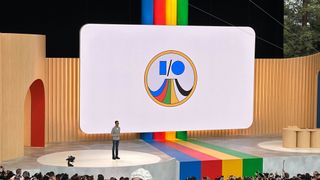
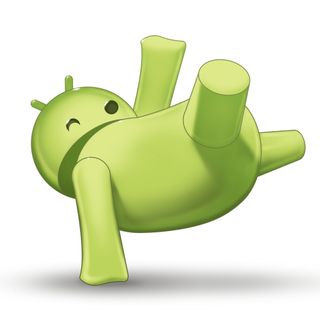
In this weekly column, Android Central Wearables Editor Michael Hicks talks about the world of wearables, apps, and fitness tech related to running and health, in his quest to get faster and more fit.
Google I/O 2024 arrives this Tuesday, and we expect a Wear OS 5 announcement. The last three I/Os gave us a massive Wear OS 3 overhaul (2021), a Pixel Watch reveal (2022), and a Wear OS 4 preview (2023). After two bombshells, last year's wearable news was more perfunctory, so I'm crossing my fingers for a bounce-back year with a long-overdue fitness fix to Wear OS.
We know that Wear OS 5 is on the I/O schedule, with a talk on "Building for the Future of Wear OS." Google might bring up the new Hybrid Interface that gives Wear OS watches longer battery life, or perhaps it'll announce plans to bring Wear OS watches into the new Find My network.
We might see Gemini coming to Pixel and Galaxy Watches, given I/O's likely AI focus. And perhaps we'll get a glimpse of the Pixel Watch 3, even if it won't arrive until the fall.
Those all seem like fair bets for your Google I/O bingo card. What's less likely, but still important, is that the Wear OS team announces a proper OS-wide replacement for the dying Google Fit. Maybe that's Fitbit, maybe not; it just needs to be something.
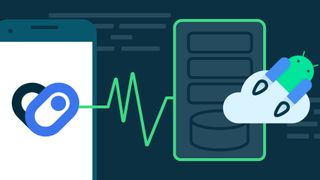
The Google Fit API shuts down next year in favor of "Android Health," a new API with universal data categories like steps, distance, and calories. Designed to work with Health Connect, it'll seamlessly transfer data between apps, with the ability to export niche data like blood glucose or pressure once watches start tracking them.
Sounds great, in theory! In practice, it still creates a vacuum where Google Fit used to sit as an agnostic option. You can transfer data, but you still need an end destination, and most fitness apps are designed to trap you in their ecosystem and charge you a fee. Yes, the Google Fit app is still available, but the writing is on the wall for the app to get the boot now that Google has turned its attention to Fitbit. Samsung Health is the closest "universal" and unpaid alternative, though that app is only available on Samsung smartwatches.
One could argue that health and fitness apps are a key way Wear OS watches differentiate themselves from one another these days, as it seems to be the big draw for the Pixel Watch. Also, these companies sell your health and fitness data to advertisers, and a universal app might prevent smaller brands from profiting. So, with a universal fitness app experience, how would Wear OS watches stand out from each other?
Be an expert in 5 minutes
Get the latest news from Android Central, your trusted companion in the world of Android
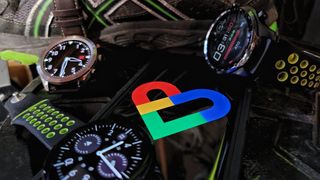
When Samsung joined Wear OS, Google didn't insist that it abandon its own apps, UI, and unique approach; leaving Samsung Health as the default option is part of that. As for other brands, they might not want their apps to have to compete with Fitbit or Samsung Health.
That doesn't change the fact that the Wear OS brand suffers from this fragmentation. Every non-Samsung/Google watch has a proprietary app that's usually stripped down compared to what dedicated fitness watches offer, such as workout recommendations and recovery times. The same goes with Apple Fitness Plus, with its popular workout videos.
Instead, we saw how OnePlus' first Wear OS offering — the OnePlus Watch 2 — had issues with health sampling, while Fossil abandoned Wear OS for good because it couldn't keep up on the software front with its woefully lackluster Wellness app. Without more support from Google, I'm not certain how many third-party brands will break out of their small niches.
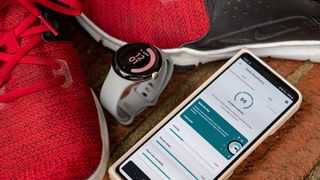
What's the solution? My first plan is simple enough and would make for a splashy Google I/O announcement: Say Fitbit is coming to all Wear OS watches with Wear OS 5, either via the Play Store or as an alternative "default" option — the same way you can choose between Bixby or Google Assistant on a Galaxy Watch.
Yes, this makes Wear OS watches more uniform. However, health data is just as vital for a good smartwatch experience as Google Assistant or apps; Samsung prefers its users to use the Galaxy Store or Bixby, but at least there are reliable Google alternatives.
As far as how Wear OS watches would stand out, there are still other ways to differentiate between different models in their design, displays, UI, and so forth, without leaving health and fitness as this Wild West marketplace.
This move would also give the struggling Fitbit brand a bigger profile with Android users. I'd even suggest that Google compensate partners like Mobvoi or OnePlus by cutting them in on the profits for any Fitbit subscriptions bought on their watches after the trial period ends.
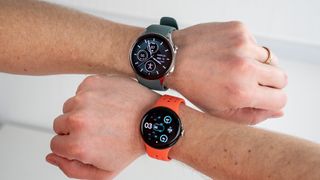
My other solution would play into Google's love of renaming services that fulfill the same purpose: Just make "Android Health" an app like Google Fit. Give it some basic goals and coaching, make it free, and let people use it as a waystation between their Wear OS watch and whichever proprietary fitness app they prefer.
Eventually, I expect Google to offer something like "Gemini Coach AI," which looks at your health data and gives you recommendations on sleep, training, and recovery. But unless that's another Fitbit exclusive to sell Pixel Watches, then it will still need a uniform Wear OS fitness experience.
We'll see if Google I/O 2024 has a fitness surprise in store for us this year, Fitbit-related or otherwise. All I know is that, at some point, Google's choice to leave its Wear OS partners to fend for themselves on health and fitness — the first priority for a lot of Android watch buyers — could backfire on them.

Michael is Android Central's resident expert on fitness tech and wearables, with an enthusiast's love of VR tech on the side. After years freelancing for Techradar, Wareable, Windows Central, Digital Trends, and other sites on a variety of tech topics, AC has given him the chance to really dive into the topics he's passionate about. He's also a semi-reformed Apple-to-Android user who loves D&D, Star Wars, and Lord of the Rings.
For wearables, Michael has tested dozens of smartwatches from Garmin, Fitbit, Samsung, Apple, COROS, Polar, Amazfit, and other brands, and will always focus on recommending the best product over the best brand. He's also completed marathons like NYC, SF, Marine Corps, Big Sur, and California International — though he's still trying to break that 4-hour barrier.